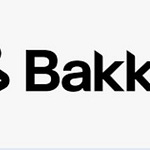Welcome to Episode 77 of the show and thanks once again for listening.
It’s no secret that my co-host and I are searching for businesses that do well under all economic conditions. You might describe such businesses as “all-weather” because they perform under a broad range of macro economic conditions. We’ve discussed several such business models in previous episodes of the show, primarily in the form of royalties and exchanges, but those aren’t the only businesses that fit well into the all-weather category.
Broadly speaking, any business that combines low operating costs with a reliable stream of income can be considered all-weather. Credit rating agencies such as Moody’s, Standard & Poor’s, and Fitch are classic low cost, steady income industries and as such have performed well for decades. Similarly, Mastercard and Visa grew exponentially since their respective IPOs by combining low costs structures and steady income streams in the digital payment space. What all of these businesses have in common is their ability to dominate a market niche while at the same time not subjected themselves to the competitive forces of that market.
In other words, all-weather companies operate adjacent to large and highly competitive markets without themselves competing in those markets. In the case of Moody’s, S&P, and Fitch, they service capital markets without themselves having to raise any capital. Rather, companies seeking to raise capital pay the rating agencies a fee in exchange for their credit rating. A credit rating that is widely recognized in developed markets is a key component to their capital raising efforts. In a sense, companies that seek to raise capital must pay a toll to an oligopoly of credit rating agencies or suffer the uphill battle of raising money outside of the established system.
Similarly, Visa and Mastercard operate adjacent to global commerce itself by performing the service of digital payments. Business leaders are consumed by the competitive struggle for market share and profit margins that occupy the mind of any capitalist and they don’t have time to worry about the payment network they’re plugged into. By providing a necessary service at a reasonable price, the payment companies are able to operate adjacent to a business without subjecting themselves to its competitive forces. Visa and Mastercard operate a low, fixed cost business in the payments space without undergoing the stiff competition that their customers are forced to contend with. Because of these traits, we see that, here again, the all-weather companies can perform well under many different economic conditions.
Clarkson PLC, the subject of today’s write up, operates similarly to the rating agencies and payment networks already discussed. This is because it profits from the shipping industry without actually shipping anything. In fact, it’s a shipping company that, throughout the late 1800’s, spent more on telegrams than it did on payroll or ships.
Founded in London, by Horace Anderton Clarkson in 1852, the company focused almost exclusively on the ship brokerage business throughout its 171 year history. In 1929 Clarkson’s became the world’s largest tanker broker when Esso appointed it as its exclusive shipbroker. The companies storied history was further enhanced when in the late 1960s Sir Alexander “Sandy” Glen took over as chairmen. Sir Alexander Glen served as an intelligence officer alongside Ian Fleming in WWII and to this day is rumored to have been one of the real life personalities that Fleming based his fictional James Bond character after. Clarkson’s dominance as a ship broker continues into the modern day as testified by a Loyds list description of the company as the “undisputed heavyweight of the shipbroking market.”
Much like the CEO who needed a global payment network but wasn’t in the payments business, shipping CEOs see themselves in the shipping business and not the broker business. Shipping company executives concern themselves with fleet maintenance, operations, and personnel issues and have no desire to add freight brokerage to their list of responsibilities. On the other hand, freight brokerage is a key component of the shipping business and owning a fleet of ships would be pointless if those ships weren’t put to economic use by moving freight around the world. Brokering, as an ancillary business to shipping, is exactly the type of niche market that all-weather companies exploit.
All weather companies featured in previous write ups, such as Texas Pacific Land, have demonstrated their ability to profit under a variety of economic conditions, including the last several decades of declining interest rates, easy money, and low inflation as well as times of inflation and high interest rates. As we add new businesses to our portfolio, we must consider their recent performance and their ability to perform under vastly different macro economic conditions. In order to decide if Clarksons fits our criteria we must first look more closely at its past performance and its business model.
Clarkson’s primary source of revenue is the brokerage business wherein they connect ships with cargo to facilitate efficient global trade. The byproduct of their primary brokerage business is a vast trove of information that can be repackaged as research and intelligence. Repackaging this information and reselling it back to the market as research constitutes the companies second largest line of business, its research business. Clarksons ability to repurpose their brokerage data and resell it as research is similar to the way in which stock exchanges re-purpose their customers order book and sell the data as a research product. The remaining smaller but growing segments of Clarksons business model include its financial services division, which provides futures products to the shipping industry, and its port services business. All of the business lines share the characteristics of low cost operations that re-purpose and leverage the company’s extensive data collection network.
Clarksons business model, which combines a low cost operating structure with a steady inflation proof income stream, should do well in the future even if the future is marked by fundamentally different economic drivers than the past, but for the company to qualify as all weather it must also have performed well during the last low rate, low inflation decades that went before. Over the last decade, Clarkson posted a solid performance against the S&P 500 index, boasting an 8.38% CAGR relative to the S&P 500’s stronger 12.07%. That Clarkson final CAGR lagged the S&P 500 over a single decade is a bit misleading, however, given the fact that different start and end dates will sometimes show Clarkson ahead of the index during the same time period. In fact much of the performance differential between the index and Clarkson stems from Clarksons 20% plus decline that began in the fall of 2021.

Coincidentally, global freight rates also peaked in the fall of 2021 when a perfect storm of increased demand and global lockdowns drove rates up a full order of magnitude above historic levels. The last year and a half decline in global freight rates and their return to historic norms likely explains Clarksons stock price decline over the same period. Taken as a whole, this track record demonstrates Clarksons ability to profit across a broad range of economic conditions. Should the next decade be inflationary in nature Clarkson’s solid track record should remain intact or even improve and outpace the index.
Clarkson’s financial statements are also enticing and offer investors a reason to investigate the company beyond just the strengths of its basic business model. For starters, the company maintains a net cash position with $540 mm in cash and cash equivalents and $130 mm in net cash against a market cap of $1.2 billion. Clarksons sparing use of debt has largely shielded its balance sheet from higher debt financing costs that continue to impact more heavily indebted corporations in today’s rising rate environment. This conservative financing and low cost business model allowed the company to increase its dividend every year for the last two decades including the 2008 global financial crisis and the lock-downs of the early 20’s. Few companies made it through 2020 and 2021 without adding to their debt load or cutting dividend and buyback programs which, again, testifies to Clarksons superior business model.
Clarksons consistent 20% plus profit margins coupled with its conservative capital structure and superior business model drove it to an average P/E of 22 over the last five years but the companies recent revaluation show it trading at just 12 times earnings. At today’s price the company has a high single to low double digit free cash flow yield and is poised for continued out performance throughout the next decade.
Several tailwinds support the contention that the company will continue to outperform in the future and they include the following. First, under investment in new ships will likely cause a supply and demand bottle neck in the coming years. Regulatory pressure to reduce CO2 emissions coupled with inflationary cost pressures for new builds are leading to under investment in new fleets and increased average ages for existing fleets. As ships are slowly decommissioned and scraped without replacements and as global demand fully recovers and eventually exceeds pre-pandemic levels, shipping rates will have to rise to compensate.
Growing offshore activity is another looming tailwind to the shipping industry. Offshore oil and gas projects declined precipitously following the shale revolution but are once again on the rise and set to increase above pre-shale oil levels in the next few years. Increased focus on offshore wind projects is another catalyst to the shipping industry that will effect both the total number of brokered ships and the rates paid for those ships. Western Europe's shift from Russian pipeline oil to LNG transported by sea acts as further support for global shipping demand. Finally, reopening China’s economy will increase shipping demand that was suppressed during multiple lock-downs over the last several years. With 22% of Clarkson’s shipping invoices originating in the Asia Pacific region, the reopening of China’s economy will have a material impact on their profitability.

For all of the reasons discussed here and more that couldn’t be included in this write-up Clarksons is worth further investigation. Neither my co-host nor I have taken a position in Clarksons yet but it is among the top candidates for future inclusion. All-weather companies that profit from industry without competing in that industry and do so with a very low cost structure represent a type of perpetual operating leverage on business itself. All-weather businesses are rare and thus are underrepresented in the indexes but individual investors should have no difficulty identifying them and ensuring they are properly weighted in their own portfolios.
With that we wrap up Episode 77 of the podcast and we hope that you’ve gained a new perspective on investing and capital allocation. If you’d like more information on similar topics consider signing up for our free Substack page where we bring you weekly investment research and related content. A link to our Substack page is included in the show notes as well as a link to the Fountain app where you can receive bitcoin micro payments just for listening and can support your favorite podcasters with bitcoin payments as small as a single sat.
Thank you again for all of your support and we will see you again next week.
SUBSTACK-ONLY BONUS
Here are two great listens and a great read rom the past week. Enjoy!
Mohnish Pabrai on the Investor’s Podcast.
Mohnish Pabrai talking to students at the University of Texas.
Horizon Kinetics mutual funds quarterly commentary.









Share this post